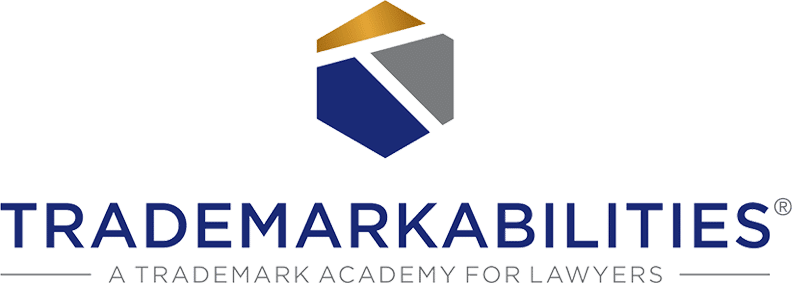USPTO Sanctions Over 30 Low-Cost DIY Trademark Filing Websites
On January 25, 2022, the USPTO issued sanctions against Abtach Ltd., 360 Digital Marketing LLC, and Retrocube LLC all believed to be operating out of Pakistan (“Respondents”). These entities were operating under thirty different trade names to file trademark applications for consumers, including Trademark Terminal, Trademark Regal, and US Trademark Solutions, among others. More than 5,500 trademark applications are being forcibly “terminated” by the USPTO due to this sanctions order. These consumers are out not only their filing fees but also whatever they paid to these companies, and more importantly, they have lost their priority filing dates. Although these trademark applicants were likely unaware of the Respondents’ misconduct, “the acts and omissions of a representative who files documents with the USPTO, including a representative not authorized under USPTO rules, are imputed to the applicant.”
The USPTO’s Notice to Show Cause Order Against the DIY Trademark Filers
In the USPTO’s Notice of Show Cause Order, issued to these companies last summer, the USPTO found that they were engaging in the unauthorized practice of law by providing legal advice to trademark owners without being licensed to practice law in the United States. They would advertise low prices to hook the non-suspecting trademark owner, then when those applicants would later try to fire them, they would charge a ridiculously high price to let the client go. In any attorney-client relationship, a client always has the choice to terminate the relationship and, aside from paying any outstanding legal bill, there should be no additional fee to terminate the relationship.
The USPTO also found that the Respondents were doctoring USPTO communications, in part to represent that the USPTO filing fees were in fact higher than they actually were and pocketing the difference. So, if a trademark owner filed a one-class application for $275 in filing fees, the Respondents altered the USPTO filing receipt to make it appear as if the filing fees were $776, which is a curious amount, considering all USPTO filing fees end in a multiple of 5. Perhaps the most flagrant violation of all is that Respondents were intentionally filing the applications with errors to ensure that the applicants would receive Office Actions that Respondents could charge them more to correct. To be clear, some seasoned practitioners also utilize this practice to “churn the file,” and while there is nothing illegal about it, it certainly pushes the bounds of ethical behavior and does not instill confidence in the attorney-client relationship that is built on trust. Respondents were also mis-reporting Office Action deadlines to their clients. When clients would try to terminate their relationship, Respondents essentially held them for ransom, demanding a $199 fee to make an amendment to the USPTO file. These practices are all against the trademark rules of practice and unethical.
Who Can Practice Before the USPTO
To practice before the USPTO, you must be a U.S. licensed attorney. Non-attorneys and foreign attorneys may not represent clients under any circumstances. Moreover, there are very specific rules of practice for how to navigate the nuances of the USPTO. While any attorney can learn this, it is not something that typically a business owner can easily navigate on their own with the same level of ease and precision as any experienced U.S. trademark counsel. Two University of North Carolina School of Law Professors examined 25 years’ worth of USPTO data and published their findings in a 2012 article that revealed that applications are approved 82% of the time when a business owner has the assistance of trademark counsel but only 60% of the time for pro se applicants. This makes sense to those of us who practice in this area. This sanctions order is also proof positive that as a record number of businesses were formed throughout the pandemic, scammers will take any opportunity to capitalize on business owners, and trademark filings is just one such hot area. Business owners need to be aware that this practice exists so they can be more discerning when they seek to protect their company’s most valuable asset.
The Trademarkabilities Masterclass Can Help
This is an opportunity to educate your clients and those in your inner circle about this decision. If you are just learning trademark law or have an interest in trademark law, use this as a teaching moment to differentiate yourself from the low-cost, DIY providers who do not add any value to their clients, because they do not know how to. If you’re ready to elevate your career and want to learn trademark law this year, we can help. In our Trademarkabilities® Masterclass, we cover all the key rules you need to know to ensure you stay out of this kind of trouble. More importantly, you’ll learn the Trademark Rules of Practice, our tips and strategies about filing trademark applications, and how to counsel your clients through the process, so you can be sure you are adding value to them every step of the way. You can learn more about our courses here or can enroll or reach out to us for more information. Or, you can join our mailing list and download our free e-guide “5 Tips for Trademark Attorney Success.”

Stacey C. Kalamaras is the founder and lead instructor of Trademarkabilities®, an online trademark academy for lawyers, whose mission it is to prepare lawyers to be confident and effective practitioners before the USPTO. Stacey started Trademarkabilities to share her passion teaching the law with the next generation of lawyers and help them become practice ready lawyers. Contact us at: hello@trademarkabilities.com.
Stacey is also a seasoned trademark attorney and currently works in-house as Senior Counsel for a multi-national candy company. She previously owned her own solo trademark practice, which she scaled and sold. She has been recognized by her peers for her outstanding knowledge and service in intellectual property law.

